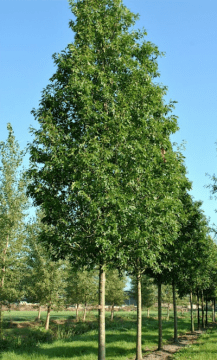Justin E. H. Smith at his own website:
 There are two very different essays I’ve been meaning to write, both of which equally merit the title of the present one.
There are two very different essays I’ve been meaning to write, both of which equally merit the title of the present one.
The one would address the special meaning of ‘existence’ as distinct from ‘being’ in the Heideggerian tradition, and would ask whether that special meaning applies to trees. Heidegger had dismissed even animals as merely being rather than existing, to the extent that they are ‘poor-in-world’ and therefore do not have that special and rare power human beings supposedly have of standing outside of being, ex-isting as Heidegger the etymologist emphasises, and beholding being rather than simply being whisked along by it as everything else is. A fortiori, it is usually assumed, the world of plants must be even poorer, and thus trees are taken as exemplary instances of being without existing.
Looking at the hanging branches of Louisiana oaks though, as I am at present, reaching down to the bayou in search of something they want, I wonder if this is true, and it seems to me, at least fleetingly, that I can imagine what it is like to be a tree, that there is something it is like, and that it is weltreich indeed. If it is difficult to grasp this, this may only be because we are limited in our sympathy by the radical difference of time scale that separates their experience from ours. I am fairly certain that if this difference were removed, we would see that trees too have projects, and experience feelings of accomplishment, defeat, joy, pensiveness, and wistfulness.
But that’s not what I’m writing about here.
More here.
